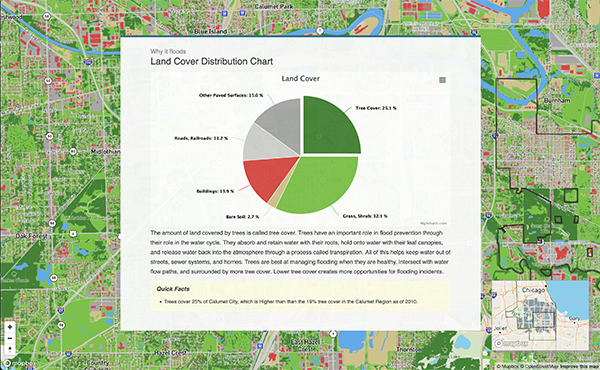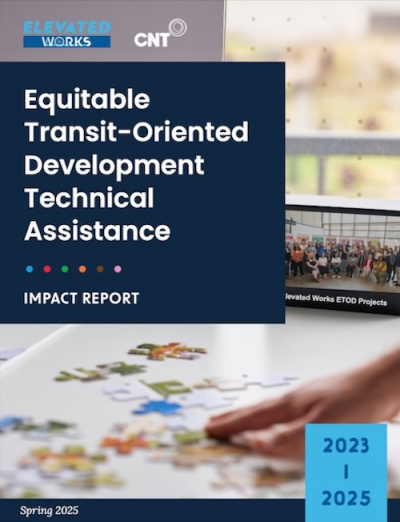We have some incredible news! Thanks to your efforts, and the leadership of Representative Mike Quigley and Senator Dick Durbin, the Federal Emergency Management Agency (FEMA) has been asked to conduct a national study of urban flooding.
The Congressional directive is included in an appropriations bill signed by President Obama, and specifically requires FEMA “to evaluate the latest available research, laws, regulations, policies, best practices, procedures, and institutional knowledge regarding urban flooding. . . .”
Sen. Durbin and Rep. Quigley have been vocal in their support for a study on behalf of flood victims, and in January 2015 they held an exploratory meeting with FEMA and CNT to discuss the parameters of the study. On October 15, 2015, CNT hosted a meeting for the legislators to meet with flood victims in Cook County. CNT also made a call for flood victims' stories from across the county. Your stories flooded in (excuse the pun) from cities as diverse as Florida, Fort Worth, New York City, Pittsburgh, Jersey City and Toledo.
Adam Armstrong of the Red Hook area in Brooklyn, New York, said, “Over the years a mix of sewer and stormwater had flooded our garden apartment and toilets had overflowed, sewage had come up into bathtubs, etc. This is a common occurrence in our neighborhood. Many of us have installed check valves to alleviate some these impacts, however this is not an adequate long term solution and we really need some permanent solution to this situation which renders our homes unlivable for great periods of time.”
Jill Freer of Fort Worth, Texas, said that rainwater pools up in her backyard and cannot drain fast enough. “The street nearby becomes flooded to the point of being waist deep,” Freer said. “Cars have been damaged and four new houses under construction were flooded to the point of having to replace the drywall in the entire first floor up to several feet.”

Urban flooding is defined as the inundation of land or property in the built environment when stormwater management systems, like storm sewers, fail. Climate change is bringing increasingly heavy rains. Combining this with the increase in runoff from continued development, we find that outdated municipal drainage systems are unable to keep up. The result is more frequent and intense local flooding, destroying homes and personal property and forcing businesses to close. Importantly, this type of flooding is not directly associated with the floodplains mapped by FEMA. In fact, a report by the Illinois Department of Natural Resources (IDNR), building off of CNT’s landmark study The Prevalence and Cost of Urban Flooding, has found that 92% of the state’s flooding is occurring outside any floodplains.
But aside from these recent CNT and IDNR studies, very little research has been done on urban flooding in the United States. And because the problem is largely unstudied, it is misunderstood in the planning and regulatory worlds, with the result that current flood risk models considered as the industry standards do not accurately predict urban flooding. Even in regard to floodplain damage, there is a severe lack of information on which to base mitigation planning, project prioritization and policy.
According to a report of the University Corporation for Atmospheric Research, supported by several federal agencies: "The available records of historical flood damage are inadequate for policy evaluation, scientific analysis, and disaster mitigation planning. There are no uniform guidelines for estimating flood losses, and there is no central clearinghouse to collect, evaluate, and report flood damage. The data that exist are rough approximations, compiled by the NWS from damage estimates that are reported in many different ways. Moreover, most published summaries of the damage estimates focus primarily on aggregate national damage totals."
The FEMA study directive in the appropriations bill is a direct result of CNT’s work with flood victims like Adam and Jill. And with $311 million allocated to it in the 2017 proposed budget for risk mapping, FEMA now has the authority and resources needed to start tackling this problem.
What Can You Do?
We still need your help. To ensure that FEMA moves quickly on this directive, we need you to:
1. Contact Senator Durbin and Congressman Quigley to thank them for their advocacy on behalf of flood victims. Tell them your flood disaster story, and let them know how important this study is to you.
Tweet: Thank you for supporting #FloodVictims across the nation! @SenatorDurbin @RepMikeQuigley #UrbanFlooding #RainReady http://bit.ly/CNTRainReady
2. Help us ensure that your town or city is highlighted in the study. Take this survey and share it with your neighbors. We'll use the stories and aggregated data to bring attention to the problems in your community.
Tweet: Tell your story about #flooding! http://bit.ly/UFAAsurvey #RainReady #UrbanFlooding





 Strengthening Transit Through Community Partnerships
Strengthening Transit Through Community Partnerships